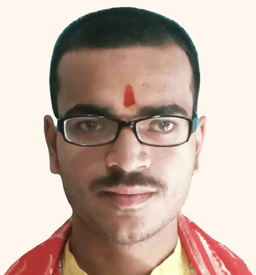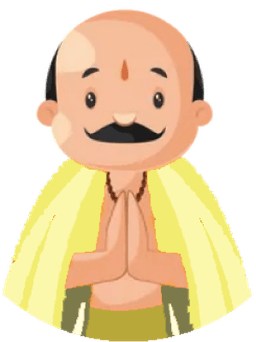Karva Chauth 2024 : Date, Celebration and History
-1.jpg)
About Karva Chauth 2024
Karwachauth is years old traditional Hindu festival where married women keep fast for the longevity and well-being of their husbands or future partners. Karwachauth signifies the sanctity of marriage. It symbolizes dedication and love towards each other. As per the Hindu calendar, it falls on Krishna Paksha Chaturthi in Kartik month. The population of North India mainly follows Karwachauth, but as its significance is increasing, now in other parts of the country and even internationally it is being practiced. Karwachauth can also be known by Karak Chaturthi.
Karwachauth is years old traditional Hindu festival where married women keep fast for the longevity and well-being of their husbands or future partners. Karwachauth signifies the sanctity of marriage. It symbolizes dedication and love towards each other. As per the Hindu calendar, it falls on Krishna Paksha Chaturthi in Kartik month. The population of North India mainly follows Karwachauth, but as its significance is increasing, now in other parts of the country and even internationally it is being practiced. Karwachauth can also be known by Karak Chaturthi.
There are various stories behind the origin of Karwachauth:
Queen Veeravati A story about Queen Veeravati is one of the most famous, and the same story is being told during the Karwa pooja in the afternoon. The story mentions the fast kept by Veeravati at her parent's home. She was thirsty and hungry and was waiting for the moonrise. Her seven brothers could not see her going through this, so they created a mirror image of the moon and told her the moon had risen, and she ended her fast after her pooja. When she took her first bite, inauspicious things started happening, such as finding hair in food, sneezing, and the third news she got that her husband had died. She then prayed to Mother Divine, Shakti, to revive her husband after knowing about the mirror image of the moon. There are many stories behind how her husband got revived to life and they got reunited after praying to Lord Shiva and Goddess Parvati. The Karva legend There was a woman named Karva. She loved her husband deeply. Once a crocodile caught her husband while he was bathing in the river. Karva requested that Yama, the deity of death, send the crocodile to hell. Yama declined. Karva vowed to destroy Yama and curse him. Yama banished the crocodile to hell and granted Karva's husband a long life since she was terrified of being cursed by a pativrata (devoted) wife. Karva and her spouse had many happy years as husband and wife. Karva Chauth is still observed with a great deal of faith and belief.
Queen Veeravati A story about Queen Veeravati is one of the most famous, and the same story is being told during the Karwa pooja in the afternoon. The story mentions the fast kept by Veeravati at her parent's home. She was thirsty and hungry and was waiting for the moonrise. Her seven brothers could not see her going through this, so they created a mirror image of the moon and told her the moon had risen, and she ended her fast after her pooja. When she took her first bite, inauspicious things started happening, such as finding hair in food, sneezing, and the third news she got that her husband had died. She then prayed to Mother Divine, Shakti, to revive her husband after knowing about the mirror image of the moon. There are many stories behind how her husband got revived to life and they got reunited after praying to Lord Shiva and Goddess Parvati. The Karva legend There was a woman named Karva. She loved her husband deeply. Once a crocodile caught her husband while he was bathing in the river. Karva requested that Yama, the deity of death, send the crocodile to hell. Yama declined. Karva vowed to destroy Yama and curse him. Yama banished the crocodile to hell and granted Karva's husband a long life since she was terrified of being cursed by a pativrata (devoted) wife. Karva and her spouse had many happy years as husband and wife. Karva Chauth is still observed with a great deal of faith and belief.
When is Karwachauth in 2024?
This year Karwachauth fast will be observed on 20 October, 2024. The auspicious muhurta for fasting will begin at 6:25 am and will end at the moonrise at 07:55 pm. The muhurta for pooja will be covered from 05:46 PM to 07:02 PM.
This year Karwachauth fast will be observed on 20 October, 2024. The auspicious muhurta for fasting will begin at 6:25 am and will end at the moonrise at 07:55 pm. The muhurta for pooja will be covered from 05:46 PM to 07:02 PM.
Rituals
Sargi: Women wake up, take a bath, do pooja, and eat their first meal of the day before sunrise, avoiding onions and garlic. The sargi has its essence as it is passed on from the mother-in-law to the daughter-in-law in the morning to eat before sunrise. Fasting: Followed by sargi, fasting is observed till the evening Vratkatha. Fasting is mainly done without any food or even water intake (Nirjala Vrat). Pooja: During the pooja, women get dressed nicely. Some women wear their traditional wedding lehengas. Ladies gather in groups and listen to Vrat Katha. Various customary practices are followed. Moonrise: The fast is broken by giving "argh," followed by sipping water from the husband’s hand and a shared meal with the family. Some wives use sieves to see their husbands. How to do ‘Argh’ after moonrise Mix some clean water and a little milk in a silver/copper vessel and offer water to the moon by raising both hands. In some customs, some women offer cooked rice without salt to the moon along with water. This ritual has to be performed at the time of moonrise.
Sargi: Women wake up, take a bath, do pooja, and eat their first meal of the day before sunrise, avoiding onions and garlic. The sargi has its essence as it is passed on from the mother-in-law to the daughter-in-law in the morning to eat before sunrise. Fasting: Followed by sargi, fasting is observed till the evening Vratkatha. Fasting is mainly done without any food or even water intake (Nirjala Vrat). Pooja: During the pooja, women get dressed nicely. Some women wear their traditional wedding lehengas. Ladies gather in groups and listen to Vrat Katha. Various customary practices are followed. Moonrise: The fast is broken by giving "argh," followed by sipping water from the husband’s hand and a shared meal with the family. Some wives use sieves to see their husbands. How to do ‘Argh’ after moonrise Mix some clean water and a little milk in a silver/copper vessel and offer water to the moon by raising both hands. In some customs, some women offer cooked rice without salt to the moon along with water. This ritual has to be performed at the time of moonrise.
Can unmarried women keep fast?
Yes, unmarried women can also keep the fast for their future partner, and the same can be ended by providing “Argh” to the stars rather than the moon.
Yes, unmarried women can also keep the fast for their future partner, and the same can be ended by providing “Argh” to the stars rather than the moon.
Disclaimer:
The above-provided information is based on various researches, facts may vary as per traditional customs and region. Kindly consult before performing the rituals.
The above-provided information is based on various researches, facts may vary as per traditional customs and region. Kindly consult before performing the rituals.
































































































